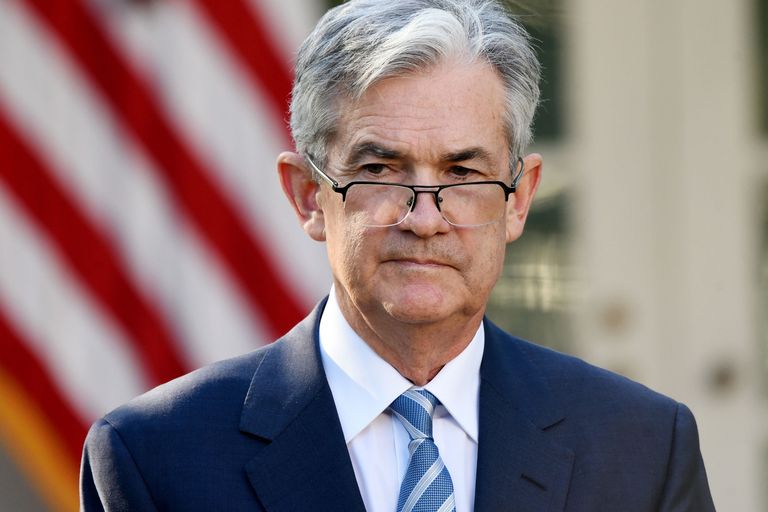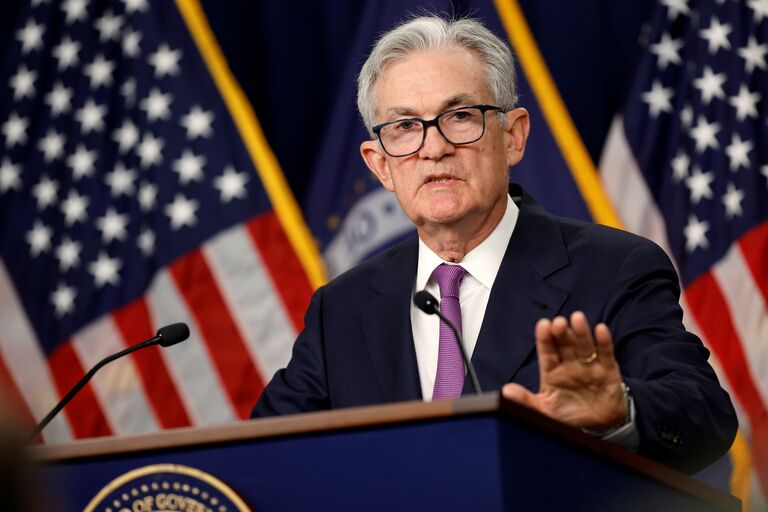European markets got off to a solid start to the month, helped by weaker economic data, and a slide in yields which raised the prospect that central banks could well be done when it comes to further central bank rate hikes.
Nonetheless after such a poor performance during October there is a sense that what we saw yesterday was nothing more than a relief rally, although it’s no less welcome for that.
As expected, the Federal Reserve kept rates unchanged for the second meeting in a row. At the ensuing press conference Fed chairman Jay Powell went on to state that no decisions had been made on whether more rate hikes were coming. He went on to say that while financial conditions had tightened, policymakers weren’t confident that policy is sufficiently restrictive, although they had come a long way.
While on the face of it, Powell was trying to come across as hawkish, markets weren’t buying it especially since yesterday’s economic data showed that the US economy appeared to be slowing. As with anything it’s a balancing act for Powell as well as the rest of the FOMC, and with this meeting out of the way the way is now clear for the rest of the committee to show their hands given the sharp fall in bond yields yesterday which indicated that markets feel the Fed is done.
US markets finished the session higher, while the slide in yields which we saw prior to the European close continued in the wake of the Powell press conference, and looks set to see European markets carry on that momentum this morning with a higher open.
Today it’s the turn of the Bank of England to come to its own decision on whether to raise rates and while we can expect to see a similar decision to hold rates as the Fed yesterday, the nuances of any decision are likely to be starkly different, although we can be fairly confident that the UK central bank is down when it comes to further rate hikes.
Having hiked 14 times in a row it seems certain that the bar to further hikes is high, and as such we’ve seen a switch in narrative that articulates a policy of higher for longer.
There is certainly concern among some of the more hawkish members of the MPC that higher rates are needed, and we can expect the likes of Catherine Mann to push this line.
She is likely to be in a minority in the short term if inflation continues to look sticky, however if as expected inflation slows further when the October numbers are released later this month, the prospect of further rate hikes is likely to diminish further.
We need to remember that the energy price cap comes down again in October, and on that comparative alone there should be a sharp drop from where we were a year ago.
Sticky wage growth is likely to be a concern for the central bank, however even here there is a sense that this has seen a peak, remaining at 7.8% for the last 3-months, even as headline inflation continues to slow, while next week’s Q3 GDP numbers are likely to reinforce concerns about a weaker UK economy.
There ought to be enough evidence today for a majority decision to hold rates, with perhaps one or two of the 4 hawks who voted for a hike in September deciding to uphold the status quo, while downgrading their GDP forecasts.
The most likely to switch to a hold would probably be external members Megan Greene and possibly Jonathan Haskel, although it has been suggested that the lone dove on the MPC, Swati Dhingra could lean towards a rate cut, which really would put the fox in the hen house as far as the pound is concerned. Given how sticky inflation currently is that would be a huge mistake and in all honesty I’m not sure it’s necessary when it comes to looking at UK gilt yields which have already fallen quite sharply from their summer peaks.
On the economic data front we’ll also get to see further evidence that the ECB has overplayed its hand on the rate hike front when we get the latest manufacturing PMI numbers from Spain, Italy, France and Germany, all of which are expected to remain firmly in contraction territory.
Spain is expected to slow to 47, from 47.7, Italy to 46.3 from 46.8, France to slow to 42.6 from 44.2, while Germany is expected to edge higher to 40.7 from 39.6.
EUR/USD – slipped back to the 1.0520 area and last week’s lows before rebounding again. We seem to be range bound between the 1.0700 area and the 50-day SMA. Below 1.0520 targets the 1.0450 level
GBP/USD – still trading below trend line resistance from the July peaks which is capping the upside, now at 1.2200. Major support remains at the October lows just above 1.2030. Below 1.2000 targets the 1.1800 area. Resistance at 1.2300.
EUR/GBP – continues to slip towards trend line support from the August lows which is now at 0.8650. A move below 0.8680 targets the 0.8620 area.
USD/JPY – failed just shy of the highs last year at 151.95, sliding back from that key resistance. Still have strong support all the way back at 148.75, with a break above 152.20 targeting a move to 155.00.






